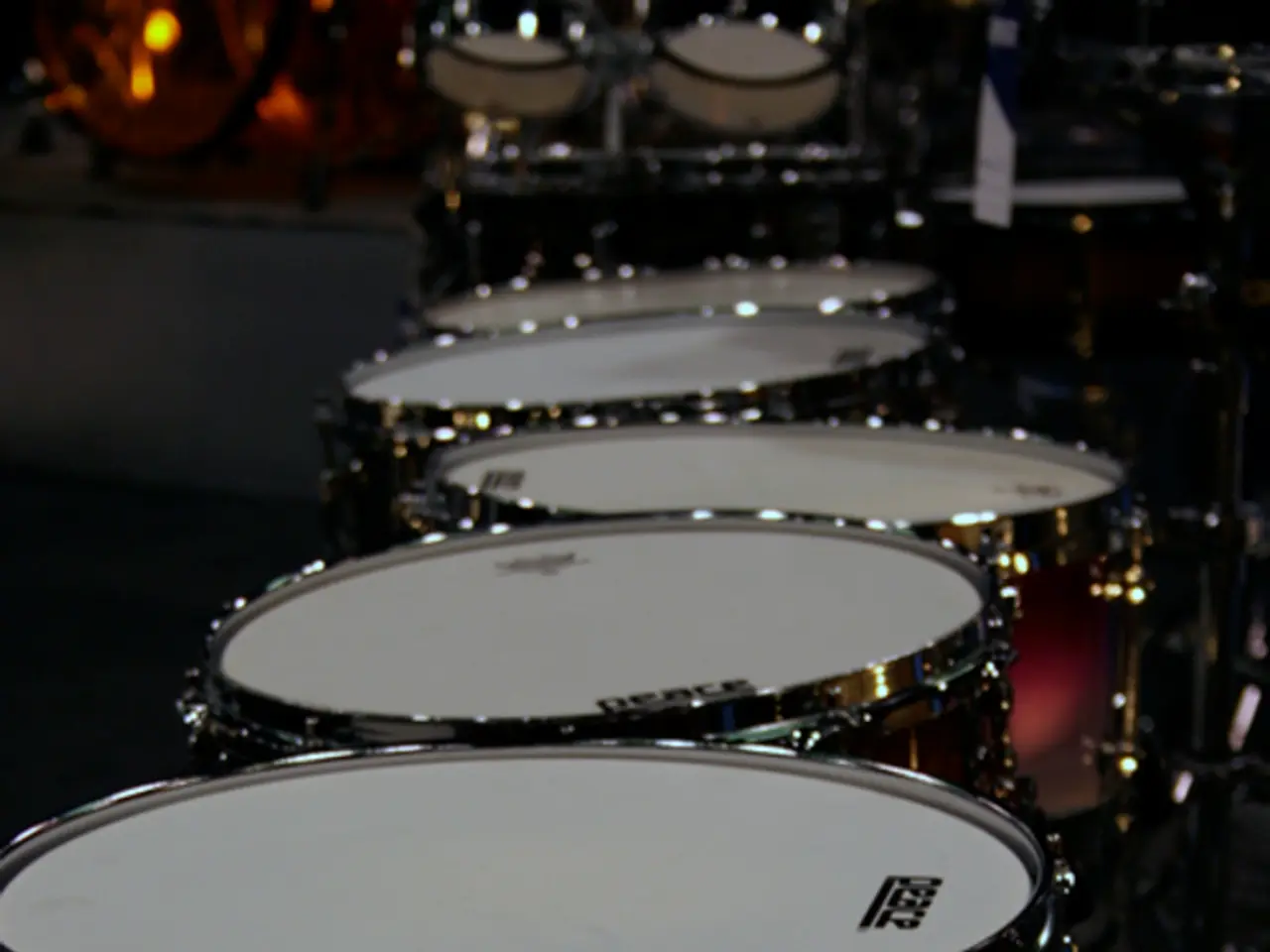Scientists at Johns Hopkins University successfully cultivate a unique 'whole-brain' organoid.
In a groundbreaking development, scientists at Johns Hopkins University have created a novel organoid model of the human brain, known as the multi-region brain organoid (MRBO). This miniaturized brain, while much smaller than a real one, boasts neural tissues and rudimentary blood vessels, resembling the natural development of a human brain [1].
The MRBO is significant as it is the first time scientists have been able to generate an organoid with tissues from each region of the brain connected and acting in concert. This unique platform offers a closer approximation to human fetal brain development, enabling researchers to model human brain development in real time and observe how disorders such as autism and schizophrenia develop early [1][2].
This development could potentially revolutionize the study of neuropsychiatric disorders. The human cell-based model opens possibilities for testing drugs that affect the whole brain, such as those used for treating schizophrenia and autism. Currently, approximately 80% of the range of types of cells normally seen at the early stages of human brain development is equally expressed in the laboratory-crafted miniaturized brains [3].
However, it's important to note that these organoids still represent an early developmental state rather than mature adult brain tissue. They lack full vascularization and immune system components, and can show variability between labs and experiments. These limitations mean organoids are imperfect models and cannot yet fully replicate the complex in vivo human brain environment [4].
Despite these challenges, whole-brain organoids offer significant advantages. They mimic multiple brain regions and early blood-brain barrier formation, offering a closer approximation to human fetal brain development. This helps identify new drug targets and may increase the success rate of drug trials, which currently see very high failure rates (up to 96% for neuropsychiatric drugs) due to reliance on animal models that are less predictive of human outcomes [5].
Moreover, organoids can be made from patient-derived cells, enabling personalized insights and tailored therapies. The NIH has announced that it will no longer consider grant proposals that do not include alternative testing models, further emphasizing the importance of this research [6].
In summary, whole-brain organoids represent a promising, human-relevant platform to advance understanding and treatment of autism, schizophrenia, and other brain disorders. However, ongoing technical improvements are required to address current limitations and fully replicate the in vivo human brain environment [1][2][3][4][5].
References: 1. Advanced Science 2. Nature 3. Scientific Reports 4. Cell 5. Nature Reviews Drug Discovery 6. NIH
- The creation of multi-region brain organoids (MRBO) at Johns Hopkins University is a significant advancement in engineering, as it provides a platform for research in various neurological disorders like autism and schizophrenia.
- Leveraging technology, scientists can now generate an organoid with tissues from each region of the brain, mimicking human fetal brain development and offering a closer approximation to real-time brain development research.
- The study of these organoids in the field of science could potentially revolutionize the treatment of medical-conditions such as neuropsychiatric disorders, by providing a more accurate model for testing drugs that affect the whole brain.
- In the realm of health-and-wellness, the development of whole-brain organoids has the potential to increase the success rate of drug trials for conditions like autism and schizophrenia, which currently have very high failure rates due to reliance on less predictive animal models.




